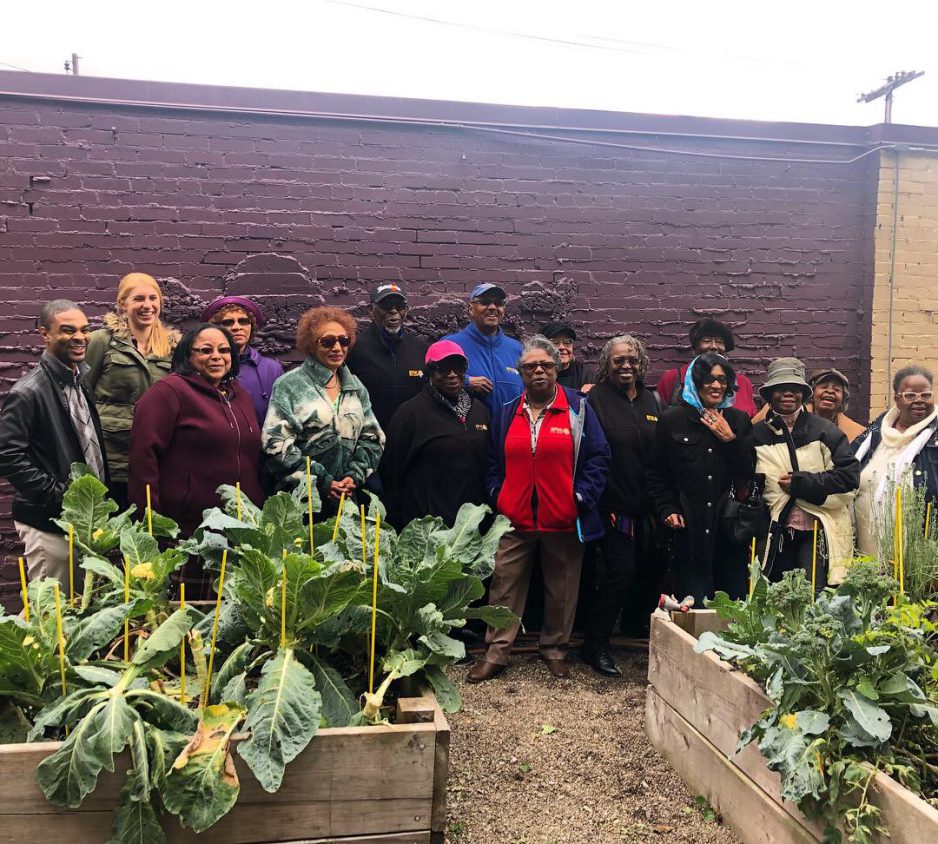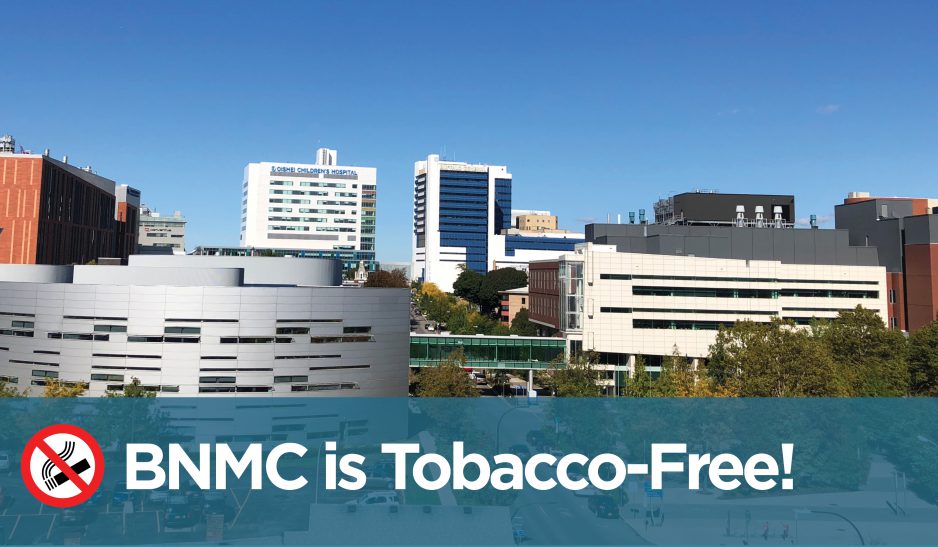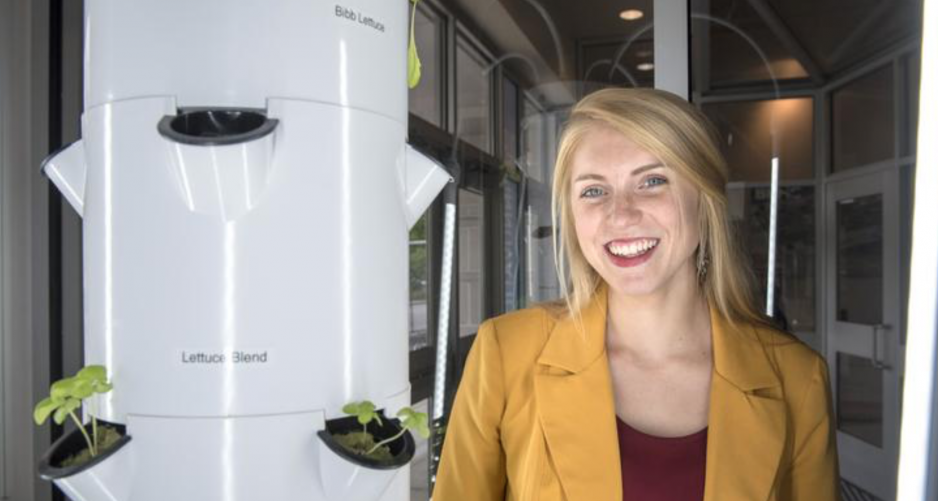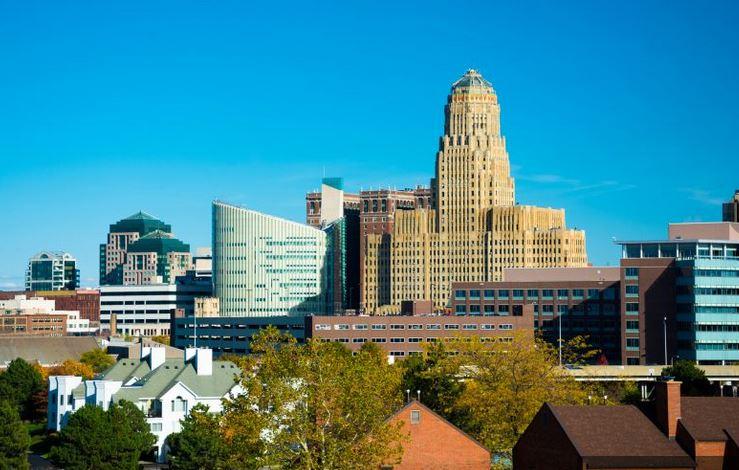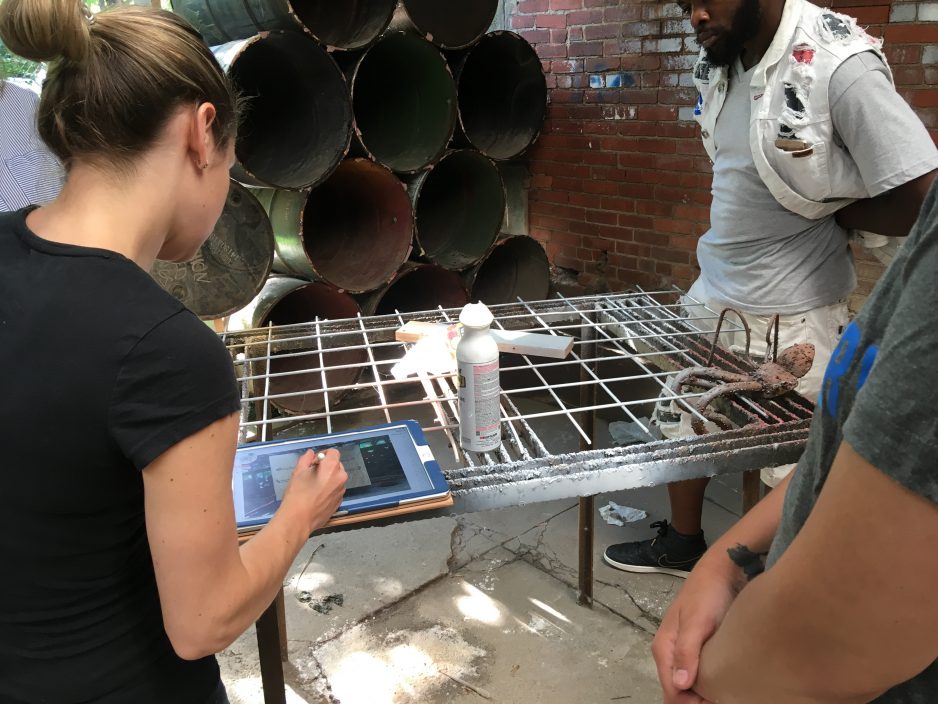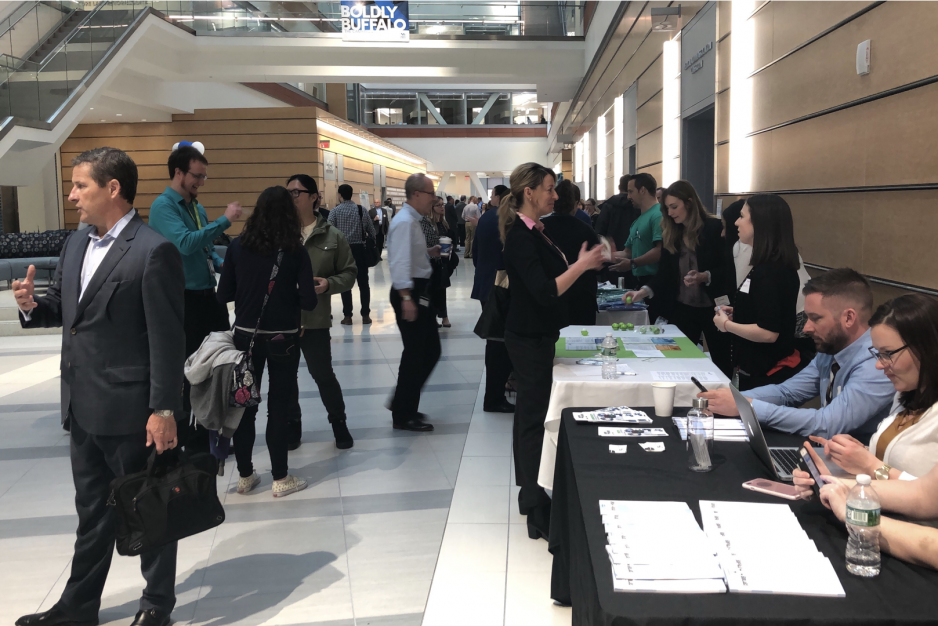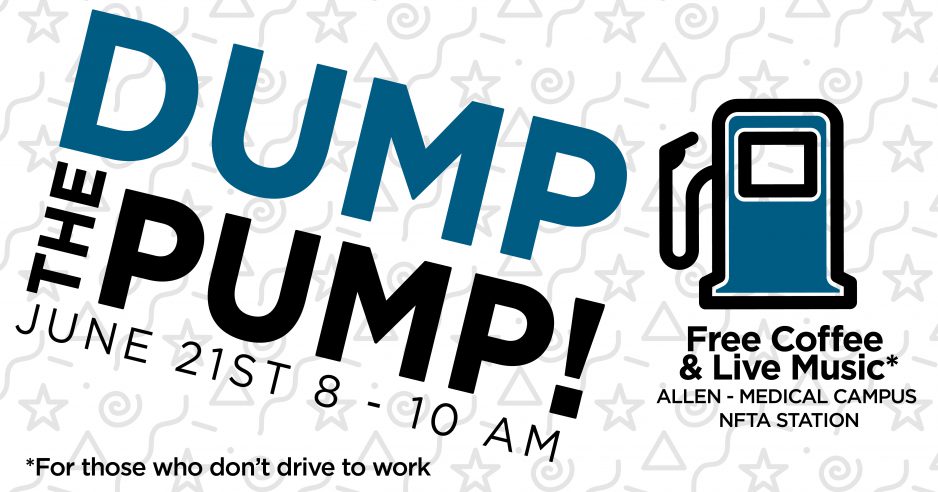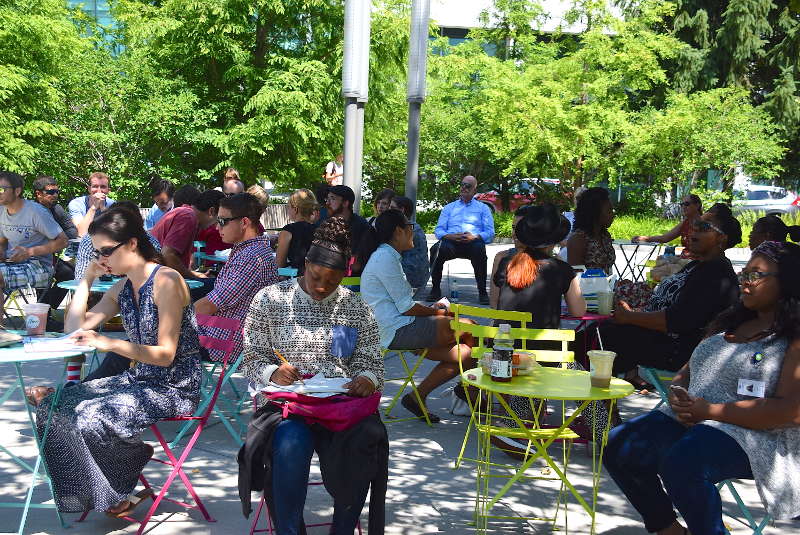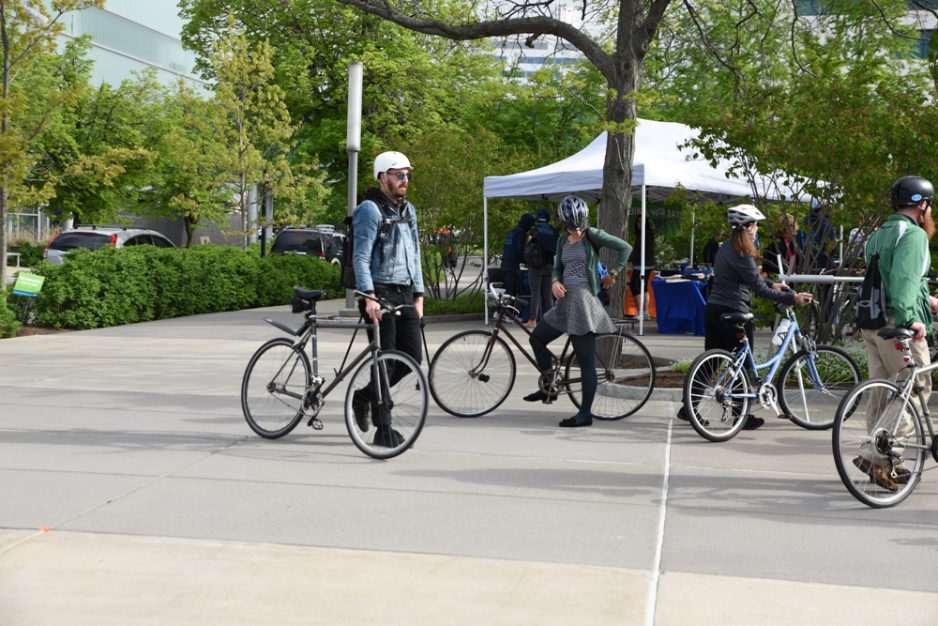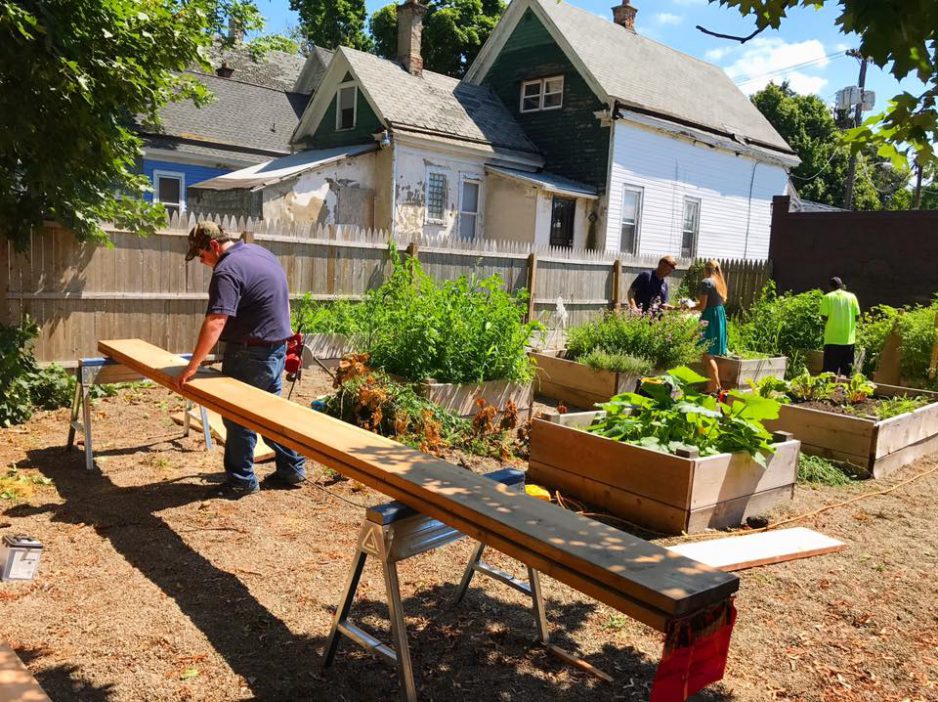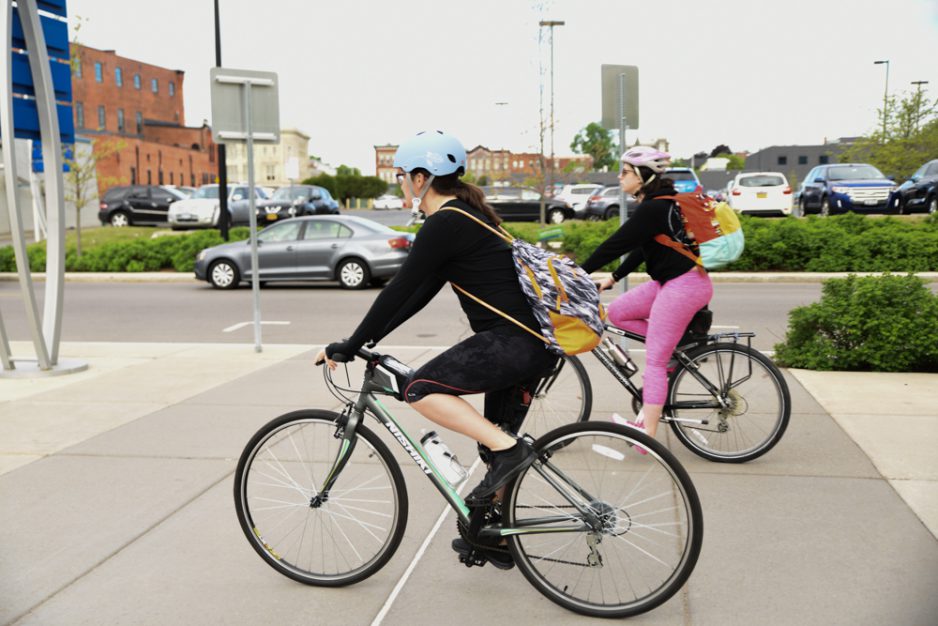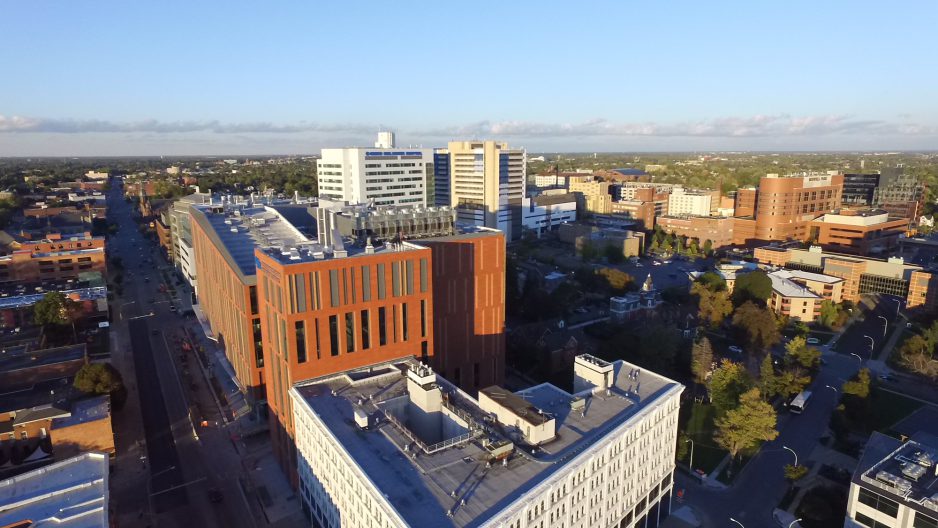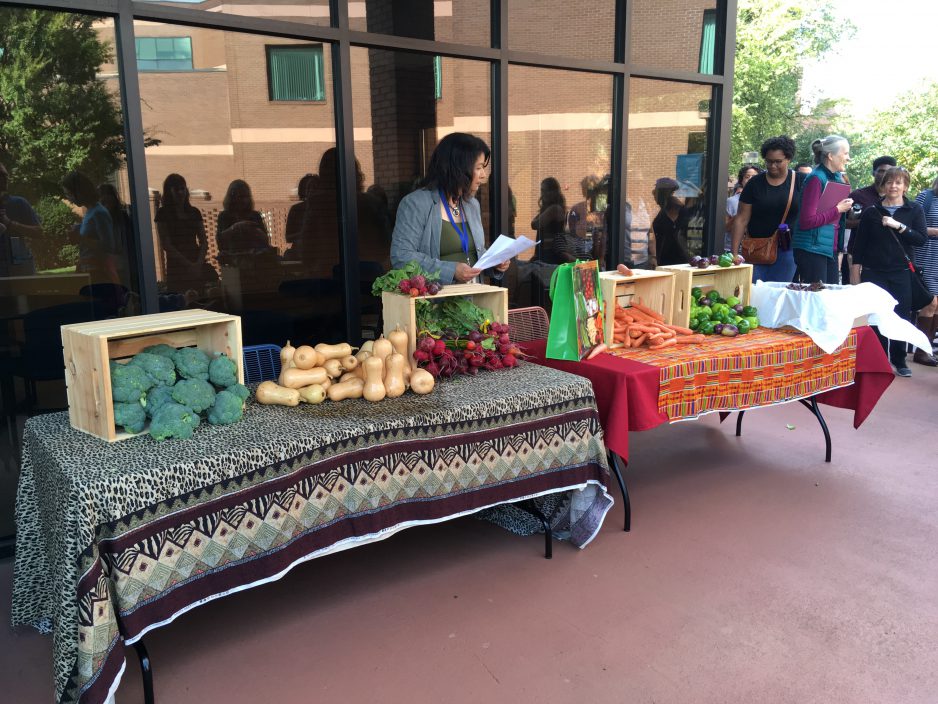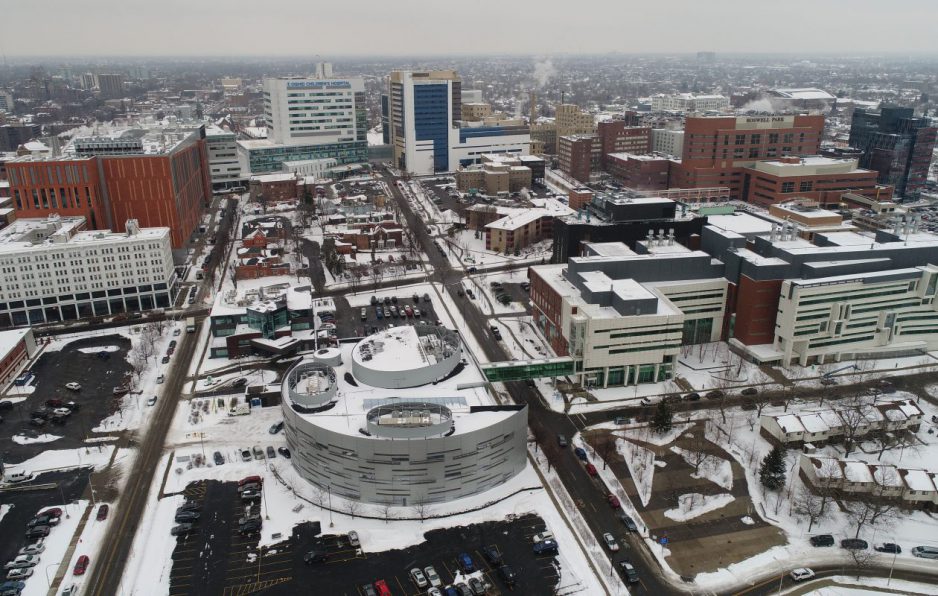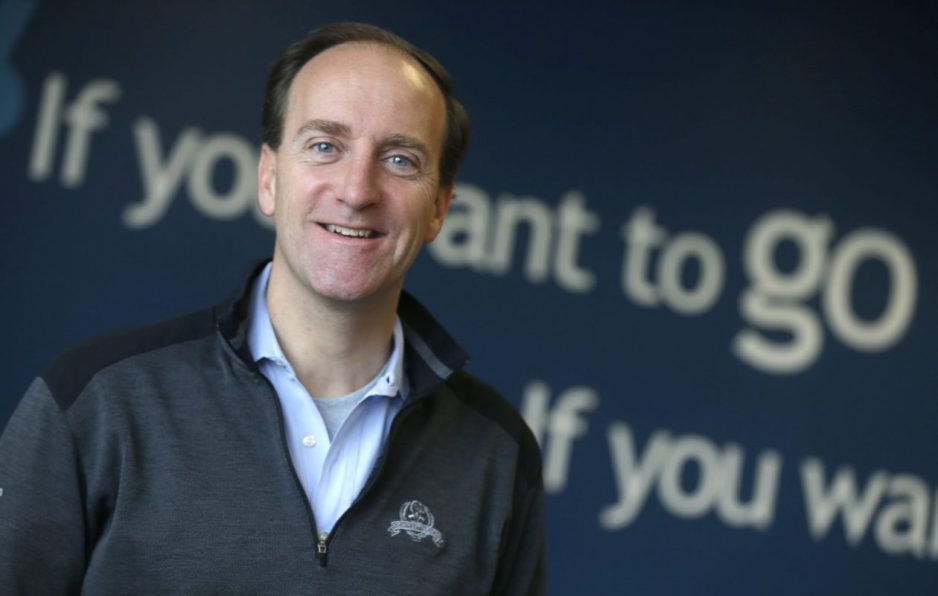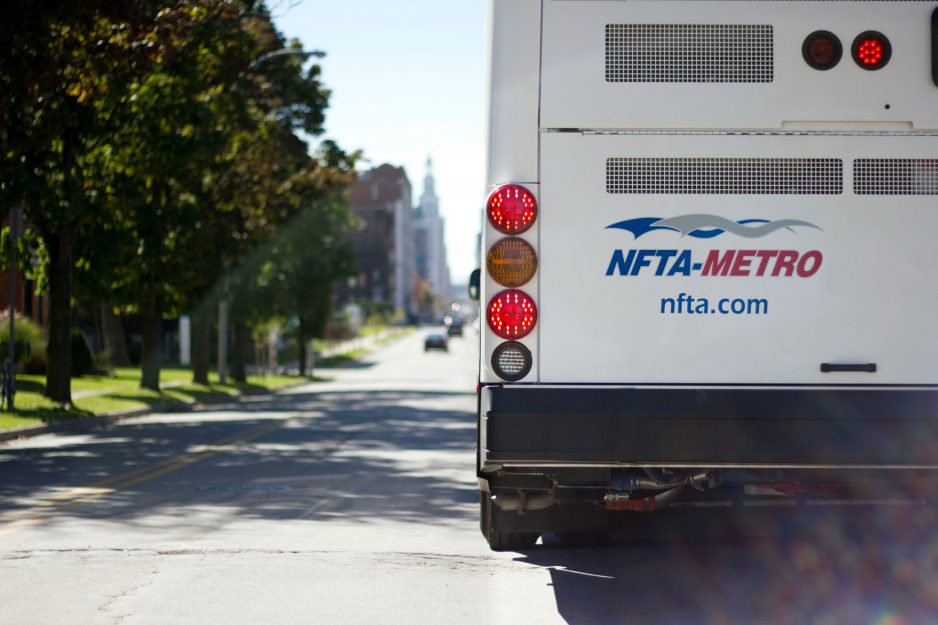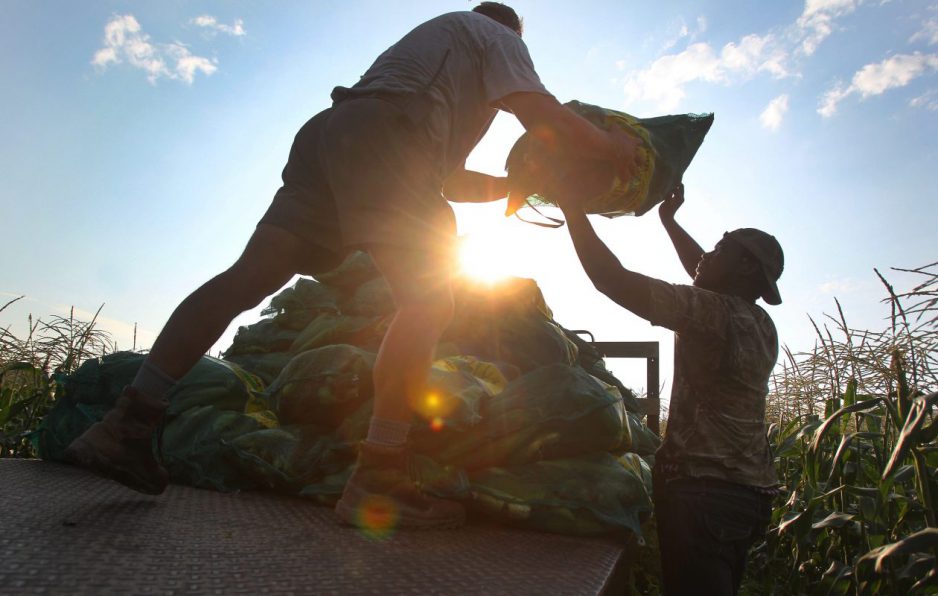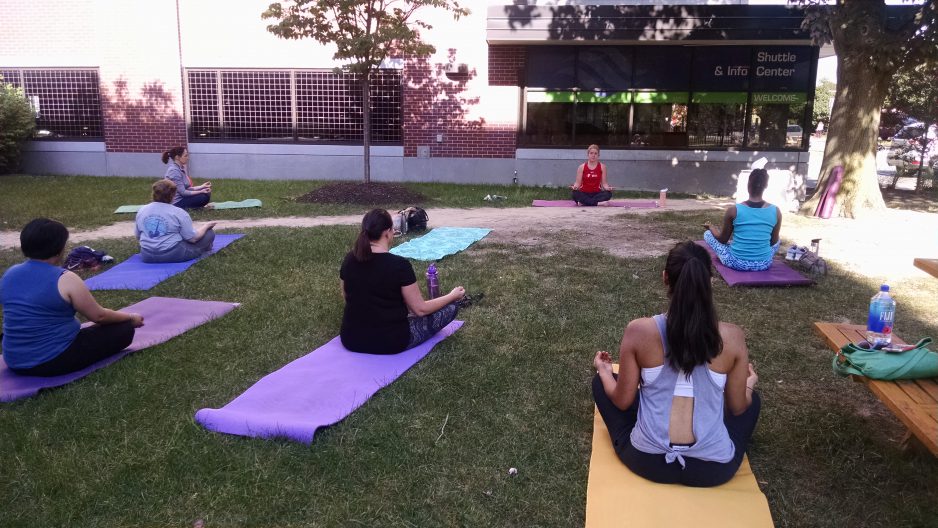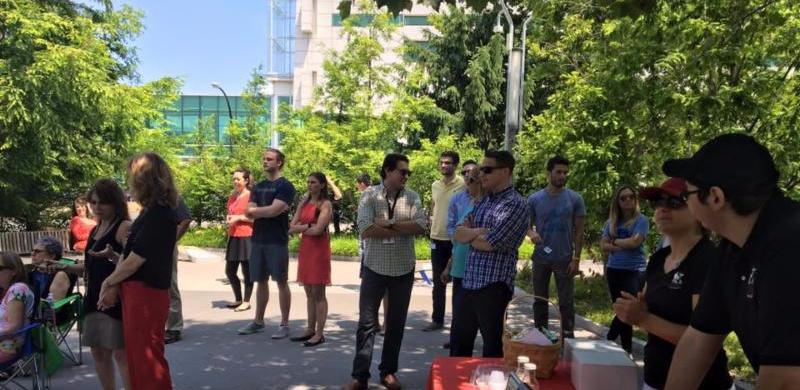Category: Healthy Communities
Sparking a Culture of Health on the BNMC
Sparking a Culture of Health on the BNMC
BNMC’s healthy communities team has been busy catalyzing wellness initiatives across Campus and our surrounding neighborhoods! From Spark micro-grants to workplace wellbeing and federal grants, we’re proud to be at the forefront of building a healthier city.
Our wp-contentroach includes:
Piloting new technologies:
We installed Byte in the lobby of the Innovation Center earlier in 2018 in partnership with Farmers & Artisans. They keep it stocked with fresh, wholesome, local food options available 24/7. We were able to purchse this through our Creating Healthy Schools and Communities grant from the NYS Department of Health. We have purchased two other machines, are rebranding them as FRESHTAKES, and will be installing them at the Jacobs Institute in the Gates Vascular Institute and the UBMD offices at Conventus.
Growing fresh produce when possible:
Through this same grant, we were able to get several Grow Towers to allow local organizations to grow their own fresh produce. Our Grow Tower in the Innovation Center has produced a variety of greens – gourmet lettuces, dinosaur kale, bok choy, and herbs like basil and parsley. We had a building get-together and made soup for everyone, and on harvest days have salad parties. We provided a tower to Hospice Buffalo, where they have been growing fresh produce to use in their cafeteria and patient menus. We also provided a Grow Tower to Erie Community College Downtown Campus for their culinary program, which supports healthier ingredients on their menu for staff, students, and the general public.
Providing Spark funding:
Through the BNMC Spark microgrant program, we provided funding for 17 different local projects, several of which involved increasing access to fresh food for our local neighborhoods. The Moot Center, a longtime partner of the BNMC, was able to build a pergola to finish off its raised garden beds that our team helped them build in 2017, allowing seniors to garden in the shade, and providing covered space for their weekly farmer’s market and events. We also supported Fresh Fix, a local CSA that has a buy one, give one wp-contentroach.
Promoting healthy eating options on and around Campus:
We debuted our Food Map this year and quickly ran out! This guide showcases places within a few minute walk from institutions on the BNMC and encourages employees to get out and get moving on their breaks. We are currently updating and reprinting, so please let us know if you see something missing.
Seeking grant funding to support projects:
We recently launched a three-year, $351K project with support from the United States Department of Agriculture’s Local Food Promotion Program to create a model for health care institutions to integrate technology and cultivate a culture of healthy food practices to increase local food procurement. We will be moving into the public phase of this effort in 2019, so stay tuned for more! This implementation grant was a follow-on to a $25,000 planning grant we received two years ago through the same program to increase healthy food in health care.
Collaborating to eliminate disparities in food access:
Under the lead of the Mobile Safety-Net Team, we are part of a collaborative coalition of local organizations, store owners, and community members to address urban food deserts. The Healthy Corner Store Initiative aims to bring fresh fruits and vegetables, taste tests, and nutrition education, to convenience stores throughout the city to engage residents in a healthy lifestyle.
This is just a brief snapshot at some of the work the BNMC team is doing to create a culture of health and wellbeing in our community. Learn more at bnmc-old.local/health.
Tobacco-Free BNMC
A reminder that the entire Buffalo Niagara Medical Campus is tobacco-free. As a Medical Campus, the health and safety of our patients, visitors, and employees is our top priority. Please help us to build a culture of health here and don’t make our visitors and employees breathe second-hand smoke. Need help quitting? Contact the NYS Smokers’ Quitline today.
Worksite Wellness: Beth Machnica takes on role of Buffalo’s healthy company advocate
Worksite Wellness: Beth Machnica takes on role of Buffalo’s healthy company advocate
By Jane Schmitt Copy Editor, Buffalo Business First
Worksite wellness is a hot topic and here’s why: For every $1 a company spends on a comprehensive wellness program, $8 can be saved in health care costs by lowering medication usage, surgeries or preventing illness and disease over five years.
That’s a solid return on investment, said Beth Machnica, healthy communities catalyst for Buffalo Niagara Medical Campus Inc.
She’s leading the charge to see the region gain “company health champions” of all sizes and in every industry. And she’s doing it through the Buffalo Healthy Workplace Initiative, led by BNMC and funded by a five-year grant from the state Department of Health.
It’s linked to a public health effort titled “Creating Healthy Schools and Communities,” whose goal is to reduce major risk factors of obesity, diabetes and other chronic diseases.
“The Buffalo Healthy Workplace Initiative is a platform for collectively transforming workplaces into environments of health promotion, one step at a time,” Machnica said.
She is tasked with bringing together diverse employers to learn from each other, develop best practices and improve their focus on creating a healthier workplace.
Indeed, a company’s overall environment and culture influence the health of people who work there, she said, from such things as air quality to the type of lighting, infrastructure that supports physical activity and access to healthy food in vending machines and cafeterias. It’s also important to address social, emotional and mental health components.
“Through this initiative, BNMC makes recommendations for how workplaces can improve after an initial benchmarking exercise on these components,” she said.
Hwp-contenty and healthy employees are more productive, and offering a strong wellness program “is a huge competitive advantage that many are beginning to realize,” she said.
Have local businesses stepped up to the plate on this? Although Buffalo is home to the chicken wing, there is great momentum among local employers and insurers in being places of health. Some worksites have been at it for quite some time. They have state-of-the-art gyms, showers, walking treadmills, free healthy lunch and snacks, personal training, chair massage, stress management and financial wellness classes. Other local companies are just getting their feet wet in the space.
How can you help? BNMC has varying levels of resources, technical assistance, infrastructure and equipment to provide organizations at any level of wellness to expand and/or improve their current programs.
Can companies learn from each other and share ideas? We help companies learn from each other and share ideas through our work council model. Each month we bring together representatives from each of the organizations involved. Most times we meet at the Innovation Center on the medical campus and focus on a certain topic, such as Social Determinants of Health, Cross Generational Differences, or Active Transportation in relation to a wellness program. Sometimes we meet at other worksites to get a tour of their facilities and get a presentation of their wellness program. The majority of participants have reported in our annual survey the biggest benefit from attending these meetings other than the content is the opportunity to network.
What drives you to make difference? I am passionate about the work I do. I feel strongly about preventive health; I want to prevent chronic disease in the population as a whole more so than I want to work with individuals. Our health care system is so focused on treating sick people. I think we need to focus more on prevention altogether. And in order to do that, changes in our environment and changes at the systems level are needed, which can make a larger impact than treating people individually and putting Band Aids on things. For me, the workplace wellness space is a perfect fit to address preventive health in the population at the systems level.
What’s the bottom line? Organizations must be strategic in offering a strong wellness program that is relevant to the unique needs of their population and invest in their employees’ health. It takes time to change a habit, behavior, lifestyle and overall a workplace culture. The return, monetary or otherwise, will come with time.
What makes the timing right for this initiative? Health and wellness is trendy right now in general. With healthy food spots opening up and free yoga everywhere, Buffalo is becoming a landscape for health and well-being. Employers are catching on to this and expanding the variety of diversity of wellness offerings as a result.
BNMC Receives USDA Grant to Enhance Local Food Procurement Efforts in Health Care
BNMC Receives USDA Grant to Enhance Local Food Procurement Efforts in Health Care
Three-Year, $351K Grant Prioritizes Local Agriculture from New York State
Buffalo, NY – October 1, 2018 – The Buffalo Niagara Medical Campus, Inc. (BNMC) has received a $260,325 grant to create a model for health care institutions to integrate technology and cultivate a culture of healthy food practices to increase local food procurement. The grant includes a local match of $91,063 bringing the project total to $351,388. The BNMC is one of 44 organizations around the country, and one of only 4 organizations to receive funding in New York State, through the U.S. Department of Agriculture’s Local Food Promotion Program (LFPP) during this grant cycle.
“Increasing access to local foods, especially in a place with such robust agriculture and other locally-sourced food, is good for the health of our people and good for the health of our economy,” said Jonathan McNeice, project director for the grant and director of healthy communities efforts for the BNMC. “Supporting local food procurement is part of our overall effort to continue to create a culture of health and wellbeing both on the BNMC and throughout our region.”
This grant builds upon the more than $2M in public and private funding that the BNMC and its community partners have secured over the past fifteen years to support healthy eating, healthy worksites, and active living policies and programs in Western New York.
BNMC’s Farm-to-Hospital Initiative began in 2015 with a $25,000 grant from the USDA Local Food Promotion Program to assess feasibility for sourcing local food on the Medical Campus. The process included identifying champions inside each organization, providing learning opportunities, gathering data, engaging suppliers, partnering with experts in the field, and creating a foundational plan for future implementation. This project will now shift to an implementation phase and seek to work with food service providers, hospital staff, and farmers dedicated to this initiative and partner closely with Health Care Without Harm to implement a local model on the BNMC. Health Care without Harm is an international group dedicated to transforming health care worldwide to reduce its environmental footprint and become a leader in sustainability, environmental health, and justice.
“BNMC Fresh: Farm to Hospital Implementation” will create a model that prioritizes local agriculture from New York State, enabling farms to access new markets (hospitals), and can be replicated across the state. The initiative aims to establish enhanced food chain transparency from farmers to distributors to institutions; as well as implement customized crop plans in both hospitals that merge New York State’s top crops with institutional demand.
This collaborative work is expected to create a culture that embraces local farms through prioritizing local procurement; establishes and expands community supported agriculture (CSA) and farmers’ market programs; establishes food chain transparency; increases awareness and knowledge among consumers of local food procurement efforts; and provides knowledge and skill-building opportunities to agribusiness stakeholders (farmers, distributor, food service teams). This project ultimately aims to make local procurement a regular practice and culture among health care institutions.
“Roswell Park has been thrilled to partner with the BNMC on both the planning grant and the upcoming implementation grant,” said Christina Dibble, director of nutrition and food services at Roswell Park Comprehensive Cancer Center. “Given the unique needs of cancer patients, we’ve made it a priority to provide seasonal, local foods for our patients, visitors, and employees when available, and we look forward to expanding our local offerings through channels that this grant opens up for us.”
The U.S. Department of Agriculture (USDA) is investing $102.7 million to increase opportunities for farmers, ranchers, and other growers across the country through five grant programs. The funding supports a variety of locally-led projects intended to expand markets for local food promotion and specialty crops. Of that total, $13.45 million is directed to 44 projects, including the BNMC’s, to support the development and expansion of local and regional food businesses to increase domestic consumption of, and access to, locally and regionally produced agricultural products, and to develop new market opportunities for farm and ranch operations serving local markets through the Local Food Promotion Program (LFPP).
About the Buffalo Niagara Medical Campus
The Buffalo Niagara Medical Campus, Inc. (BNMC) is a multi-anchor social enterprise focused on driving innovation in partnership with our community. As the non-profit charged with addressing shared issues among our member institutions, the BNMC plays a significant role in driving positive change that builds a vibrant, innovative environment. We focus on improving infrastructure, managing our transportation system, creating a culture of health and wellbeing, driving innovation, and working with our partners to continue to build an innovative district that reflects the best of our community.
Buffalo Chosen as Model City to Host Healthy Community Convening
Buffalo Chosen as Model City to Host Healthy Community Convening
In 2015, the BNMC received a five-year Creating Healthy Schools and Communities grant from the NYS Department of Health to create healthier workplaces and increases access to healthy affordable foods in underserved communities in the city of Buffalo. This year we are pleased to be hosting the annual conference for our fellow grantees in Buffalo.
Chosen for its many healthy living initiatives, Buffalo, NY will hold the third annual convening of the Creating Healthy Schools and Communities (CHSC) grantees, hosted by the New York Obesity Prevention Center for Excellence (OPCE). For the past three years, 25 CHSC grantees and their partners have been working with schools, businesses, government, and other groups to ensure places throughout New York State provide access to healthy foods and beverages and opportunities for physical activity.
Convening attendees will have the opportunity to experience Buffalo’s bike and car shares, visit an urban farm, learn firsthand about Buffalo Public School’s (BPS) wellness efforts, and go to several healthy workplaces such as the Buffalo Niagara Medical Campus (BNMC). As a CHSC partner, BNMC will showcase its demonstration sites for healthy workplaces, including healthy subsidized vending, Farm to Work programs, treadmill and standing desks, and onsite fitness facility equipped with locker rooms and showers.
The BNMC has also been involved in Buffalo’s healthy corner store initiative, a collaborative coalition of representatives from various organizations working to increase healthy food retail throughout the city, as well as the BPS wellness policy and its Farm-to-School efforts
BNMC to Host NYSERDA Electric Vehicle Ride + Drive Event
Curious about what it is like to drive an electric vehicle (EV)?
Come experience the quiet, fast, and smooth ride for yourself!
Date: Thursday, September 20th
Time: 10:30 AM-2:30 PM
Place: 589 Ellicott St. (parking lot)
Healthy Victory: Highlighting our Collaborative Partnership with the Foundry, GroundWork Market Garden, African Heritage Food Co-Op, and YouthBuild of the Service Collaborative of WNY
Healthy Victory: Highlighting our Collaborative Partnership with the Foundry, GroundWork Market Garden, African Heritage Food Co-Op, and YouthBuild of the Service Collaborative of WNY
As year three of BNMC’s Creating Healthy Schools and Communities (CHSC) grant from New York State Department of Health comes to a close this September, the Healthy Communities team celebrates this past year’s successes.
Over the past year, our group has collectively worked on a project that not only increases access to healthy affordable foods for residents in East Buffalo, but does so through a community-driven wp-contentroach that builds neighborhood capacity and social capital.
Identifying the Problem
In BNMC’s work as part of the CHSC grant to increase healthy food access in communities throughout the city of Buffalo, it was wp-contentarent both food consumers and producers in East Buffalo face significant challenges. Residents experience a complex environment of societal, social, and health disparities that are especially amplified among people of color, all while residing in neighborhoods largely void of easily accessible grocery stores with affordable fresh foods. These conditions existed in the context of a food environment where some urban farmers struggled to connect with nearby neighbors, establish a farm stand, and find efficient models for transporting their harvests, on top of all the other challenges farmers already face.
Developing a Solution
BNMC identified a collaborative opportunity to merge both consumer and producer needs: The Farm Stand Project. The Farm Stand Project brings together GroundWork Market Garden, African Heritage Food Co-Op, The Foundry, YouthBuild, and BNMC to build mobile farm stands that bring locally grown fresh foods to residents who need it most.
By partnering with The Foundry and YouthBuild, the farm stands for GroundWork Market Garden and African Heritage Food Co-op were designed and built by community members who come from the neighborhoods the stands will serve. Every Friday morning from 9am-12pm from January 2018 through July 2018, the youth met at The Foundry and worked with professional carpenters and welders to build the farm stands. While the stands are currently undergoing finishing touches, the team aims to start using them as soon as possible for the current 2018 growing season.
The BNMC Healthy Communities Team has two more years (until September 2020) to continue its CHSC work supporting healthier communities throughout the city of Buffalo.
About The Foundry
The Foundry is a nonprofit small business incubator in East Buffalo that includes a makerspace, woodshop, metal shop, tech lab, textile lab, and also offers classes to the public. In addition to their daily operation, they also partner with the Service Collaborative of WNY’s YouthBuild program, which provides at-risk or low-income youth the opportunity to complete their education, earn their GED, and learn in-demand job skills while taking part in community revitalization projects.
REDDY, Set, Bike!
REDDY, Set, Bike!
With summer in full swing, it’s finally time to enjoy the warmth that this vibrant city has to offer. There are many ways to take in the sights, art, and culture of Campus while travelling from place to place. By now, you’re sure to have seen one of the most efficient ways to travel around Campus. They’re impossible to miss! They’re bright red bicycles with bright red baskets and even brighter yellow locks and free annual memberships are available for employees and students on the BNMC!
REDDY Bikeshare provides rentable bicycles at unique locations around the city of Buffalo. The bikes can be picked up at hubs and used for a small fee after signing up with the SoBi wp-content, then dropped off at hubs around Buffalo for free or possibly a small charge, depending on where the bike is parked.
There are slightly different rules for the REDDY Bikes on Campus. We’re lucky to have two hubs where you can pick up bikes, using our free REDDY Bikeshare code: GOBNMC2018. You can also lock your REDDY bike anywhere on Campus for free if you don’t have time to ride back to one of the hubs. It’s easier than ever to rent a bike and easiest for employees and students here!
Whether it’s to stay fit, get somewhere quicker than on foot, or to slow down and take in your surroundings, there are countless benefits to biking. Next time you need a ride somewhere, consider REDDY Bikeshare.
Visit their website for more details on the program and to sign up.
BNMC Celebrates Dump the Pump Day on June 21st
Join the BNMC for our annual Dump the Pump Day celebration on Thursday, June 21st!
Dump the Pump Day is a nationally recognized day to encourage people to travel around their cities in a way that supports and raises awareness for the benefits of sustainable transportation. Ride to work on public transit, bike, join a carpool, or walk to reduce fossil fuel emissions and your carbon footprint.
The BNMC will be hosting a celebration for employees and neighbors who “dump the pump” for the day, June 21st from 8:00 – 10:00 AM, at Allen/Medical Campus Metro Rail Station. There will be live music and free coffee for everyone who takes the pledge!
Take the Dump The Pump pledge and remember that when it comes to bettering the environment every little bit counts!
Summer Events on the BNMC
Summer Events on the BNMC
Summertime offers a great opportunity to get active and engaged on the BNMC! With a new event or activity every week, there’s no shortage of fun and healthy things to do on Campus. Our schedule boasts many of our longtime signature events like Tunes in the Tent, Walking on Wednesdays, and our Annual BNMC Fit Wellness Fair, plus several NEW offerings, including morning & evening yoga, bike breakfasts for our active commuters, and Medical Campus Monday walking tours.
Whether you’re into the local music scene, an active bike advocate, or a mall-walker looking for a change of pace — we promise, there’s something for everyone to be part of and enjoy!
Check out our schedule below and be sure to register where you see links.
JUNE
June 6: Tunes in the Tent with Colored Musicians Club | 12-1 p.m. | Ellicott Park, Ellicott & Virginia Sts.
June 11: Medical Campus Monday Walking Tour | 4:30-5:30 p.m. | Meet at the Innovation Center, 640 Ellicott St.
June 13: Morning Yoga | 7:30-8:30 a.m. | Corner of Washington & Carlton Sts.
June 20: Walks on Wednesdays led by Dr. Roseanne Berger, UB Jacobs School of Medicine | 12-1 p.m. | Meet at Main & Allen Sts.
June 27: BNMC Fit Employee Wellness Fair | 11:30 a.m.-1:30 p.m. | Wyndham Garden Buffalo, 125 High St.
Yoga EVERY Tuesday after work | 5:15-6:15 p.m. | Washington & Carlton Streets
JULY
July 9: Medical Campus Monday Walking Tour | 4:30-5:30 p.m. | Meet at the Innovation Center, 640 Ellicott St.
July 11: Morning Yoga | 7:30-8:30 a.m. | Corner of Washington & Carlton Sts.
July 11: Tunes in the Tent with Live DJ | 12-1 p.m. | Ellicott Park, Ellicott & Virginia Sts.
July 18: Walks on Wednesdays led by Shirley Johnson, Roswell Park Comprehensive Cancer Center | 12-1 p.m. | Meet at Roswell’s Kaminski Park, Elm & Carlton Sts.
July 25: GO BNMC Bike Breakfast | 8-9:30 a.m. | Ellicott Park, Ellicott & Virginia Sts.
Yoga EVERY Tuesday after work | 5:15-6:15 p.m. | Washington & Carlton Streets
AUGUST
August 1: Tunes in the Tent with Ellen Pieroni Quartet | 12-1 p.m. | Lawn @ Washington & Carlton Streets
August 6: Medical Campus Monday Walking Tour | 4:30-5:30 p.m. | Meet at the Innovation Center, 640 Ellicott St.
August 8: Morning Yoga | 7:30-8:30 a.m. | Corner of Washington & Carlton Sts.
August 8: BNMC Summer Block Party! | 4:30-7:30 p.m. | Roswell’s Kaminski Park & Gardens
August 15: Walks on Wednesdays led by Lisa Schmidt, COO, Buffalo General Medical Center/Gates Vascular Institute/Oishei Children’s Hospital | 12-1 p.m. | Meet at Colby Park, next to MiGO parking garage at 134 High St.
August 22: GO BNMC Bike Breakfast | 8-9:30 a.m. | Ellicott Park, Ellicott & Virginia Sts.
Yoga EVERY Tuesday after work | 5:15-6:15 p.m. | Washington & Carlton Streets
Nearby Farmers’ Markets
- Roswell’s Market at the Park, Kaminski Park & Gardens, Elm. & Carlton St. | Wednesdays from 1am-1pm
- Moot Community Center at 292 High Street | Thursdays from 10am-12pm (5 minute walk from Buffalo General Medical Center, Oishei Children’s Hospital, Gates Vascular Institute and Roswell Park)
- Downtown Country Market on Main St. between Court & Church Streets | Tuesdays & Thursdays from 10am-2:30pm
- Salvation Army at 960 Main St. | Tuesdays from 11am-1pm

Bike To It!
Bike To It!
Bike to Work Breakfast to Celebrate Cyclists and Improved Bike Amenities on Medical Campus this Friday
Improvements that support biking and commuting options are increasing on the Medical Campus, promoting health, environmental responsibility, and pedestrian-friendly streets.
WHAT: A breakfast gathering at the culmination of National Bike to Work Week to celebrate those who commute to work by bike and to highlight the many amenities and improvements on the Medical Campus specifically designed to create a bike-friendly culture.
The Medical Campus has the densest bicycle parking in the City of Buffalo with 233 spaces and secure bike parking, two Reddy Bike Stations with a total of 12 bikes for short term use, and geo-fencing around the Campus perimeter to allow users to leave Reddy Bikes anywhere on Campus rather than at a Reddy Bike station. Other amenities include a newly painted crosswalks at Ellicott and Virginia with more to be added this summer, covered and locked bike storage, and 100 additional bike racks added to the Campus this summer, including additional secure bike storage.
WHEN: Friday, May 18th 7:30 AM – 10 AM
WHERE: At the park at the corner of Ellicott and Virginia Streets on the Buffalo Niagara Medical Campus
WHO: BNMC is hosting the event in partnership with Gobike Buffalo to celebrate bike commuters and those using active commuting options to get to work.
Collaborating partners in transportation planning will be on hand to share information about transportation options, programs and amenities on Campus that encourage Campus employees to try biking, walking, transit, and carpooling. Partners include GObike Buffalo, Go Buffalo Niagara, Reddy Bikeshare, NFTA, and others.
Breakfast and coffee provided by The Grove and Caffeology.
WHY: BNMC and its transportation partners are committed to creating a bike-friendly campus and encouraging local residents to try new modes of transportation that are environmentally friendly, promote health, and contribute to a cyclist and pedestrian-friendly city.
BNMC Awards Micro-Grants to 17 Local Organizations
BNMC Awards Micro-Grants to 17 Local Organizations
Awarded programs and projects aim to showcase creative ideas and strengthen community
The Buffalo Niagara Medical Campus has selected 17 organizations out of more than 60 wp-contentlicants to receive a total of $36,500 in its first annual BNMC Spark micro-grant program. Local community members and organizations were invited to wp-contently for grant funding for projects and programs that help to showcase the neighborhoods adjacent to the Medical Campus as active, vibrant places. Among those selected include El Museo’s Art in Transit Project, Michigan Street African American Heritage Corridor’s “Salute to African American History Makers,” and a Community Wellness Initiative organized by the Mulberry Street Block Club. Funded programs include art projects, wellness programs, preservation efforts and skills development initiatives and many others. A full list of winners can be found at www.bnmc-old.local/spark.
According to Marc Pope, Community Program Manager for the BNMC, “The scope and variety of wp-contentlications was very impressive and it was difficult to narrow down the field to our final choices. The number of innovative ideas we received speaks to the community’s grassroots initiatives and creativity that will truly benefit local neighborhoods. We are proud to support the efforts of these community leaders to get their programs and projects off the ground or over the finish line.”
The Spark grants help programs or projects in a targeted zone around the Medical Campus that align with BNMC’s key goals of cultivating a safe accessible, active, and inclusive district that fosters health and wellbeing and is supported by smart sustainable infrastructure; strengthening the community with economic opportunities benefiting local youth, residents, businesses, and neighborhoods; and driving innovation, job growth, and economic development. Priority was also given to those initiatives that focus on access to healthy food and active living opportunities; neighborhood improvements including beautification, walkability and enhanced transportation options; arts and culture; energy and sustainability; youth and education; and access to jobs and economic opportunities.
BNMC Spark grants are designed to help organizations address funding needs or gaps for programs or projects that can be completed in 2018. While the BNMC has supported local organizations and initiatives for many years, the BNMC Sparks micro-grant program was developed to formalize the process and to attract new programs and organizations that are aligned with the BNMC’s overall goals.
Change Up Your Commute this Spring!
Change Up Your Commute this Spring!
It might not feel like spring quite yet, but pretty soon the weather will turn and it’ll be time to dust off your bicycle and break out your walking shoes. As an employee on the BNMC, there are plenty of ways to commute to work that are not only healthy, but have less impact on the environment, and can save you money!
With a focus on creating a healthy community, our GoBNMC program encourages the use of fewer single-driver cars on and to Campus. Sign up for any of our transportation programs at GoBNMC.org to discover options and savings!
Commuting Options & GoBNMC Perks:
- Public Transit: The newly renovated Allen Street Subway station is located right on Campus inside the new Jacobs School of Medicine and Biomedical Sciences. The NFTA has also extended bus routes from the Southtowns to the Medical Campus with pick-up and drop-off locations at Carlton and Ellicott streets. Ask your employer about the BNMC corporate subsidy of at least $20 for monthly metro passes and pre-tax savings for transit to make it even more economical.
- Carpool: If driving with one or more colleagues, you can take advantage of preferred parking spaces and a carpooling pass that allows you to split the cost of parking with up to four people (only one car can park at any given time). Pre-tax payroll deductions may make this even cheaper.
- Bike: We have plenty of bike racks on Campus and bike storage with 24/7 member-only access at the corner of Ellicott and Virginia. Need to get to a meeting or make a quick trip for lunch or errands? Grab one of the many Reddy Bikes on Campus at your convenience! Annual memberships are free for Medical Campus employees with the promo code GOBNMC2017 at reddybikeshare.com.
- Need a ride after getting to campus without a car? Take advantage of the Zipcar Carshare program to use a vehicle for a flat rate (includes gas & insurance). Free membership and discounted rates are available for Medical Campus employees. We also offer Guaranteed Ride Home if something unexpected comes up and you need to be there quickly!
- Walk: Enjoy the scenery and the health benefits by getting to Campus on two feet!
BNMC to Explore Ways to Create Greener, Safer and More Accessible Main Street Through Smart Infrastructure
BNMC to Explore Ways to Create Greener, Safer and More Accessible Main Street Through Smart Infrastructure
When the City of Buffalo begins its $13 million streetscape improvement project on Main Street this spring, the BNMC team will work alongside them to identify opportunities for integrating smart transportation infrastructure and technology into the design to create a greener, safer, and more efficient streetscape ready for future transportation advancements.
The Smart Corridor Plan will focus on opportunities for improving multi-modal traffic efficiency, emissions reduction, access and mobility, and safety by incorporating leading-edge technology such as Internet of Things sensors, artificial intelligence, and streetscape design in the corridor’s transportation system. Design elements and technology improvements to be considered are wireless communications; sensing technologies; dynamic traffic control and crossing signalization; smart parking technologies; transit technologies including real time data and systems coordination; and renewable energy and energy efficiency wp-contentlications. Specific recommendations and anticipated costs for improvements to the City’s central thoroughfare between Goodell Street and Humboldt Parkway will be included.
The BNMC received $75,000 in funding for the project from the New York State Energy Research and Development Authority (NYSERDA) and New York State Department of Transportation.
Employers Connect to Create Healthy Workplaces
Employers Connect to Create Healthy Workplaces
Finding fresh, nutritious food in the workplace can sometimes be a challenge, especially with the lure of sugary snacks or vending machine fare close by. A number of area employers are trying to change that and are working together in the Buffalo Healthy Workplace Initiative, led by the BNMC, to make their workplaces healthier.
Funded through a five-year Creating Healthy Schools & Communities (CHSC) grant from the NYS Department of Health that the BNMC is a lead partner on, the goal of the public health initiative is to reduce major risk factors of obesity, diabetes, and other chronic diseases in 85 high-need school districts and associated communities statewide. As part of the grant, the Buffalo Healthy Workplace Initiative brings together diverse employers to learn from each other, develop best practices, and improve their focus on creating a healthier workplace for their employees.
Local employers including New Era Cap Company, GObike Buffalo, Walsh Duffield, the BNMC, Harmac Medical Products, Independent Health and others are working together and within their own organizations to make the healthy choice the easy choice for their employees. For many company health champions, sharing ideas and celebrating successes with others helps to keep motivation high.
There are currently 21 employers in the program with a goal of reaching 50 within three years. The BNMC’s healthy communities catalyst, Beth Machnica, leads participating companies through an initial assessment of their current health and wellness programs, helps identify areas for improvement, and facilitates connections to local community programs and resources that can help make healthy improvements in their workplace. A post-assessment is also planned to quantify results. The group meets monthly to learn from each other.
If you or your company is interested in becoming a champion of creating healthy workplace culture, visit BNMC.org/healthyworkplace or contact Beth Machnica at emachnica@bnmc-old.local to learn more.
What’s next for the Buffalo Niagara Medical Campus?
What’s next for the Buffalo Niagara Medical Campus?
| The Buffalo News | Published | Updated
The newly opened $270 million John R. Oishei Children’s Hospital was a page turner in the latest chapter of the burgeoning downtown Buffalo Niagara Medical Campus.
So was the December opening of the University at Buffalo’s $375 million new home for its Jacobs School of Medicine and Biomedical Sciences.
The completion of the new projects mark a turning point for the 120-acre campus at the epicenter of Buffalo’s renaissance.
In 2002, the campus was in its infancy with just three companies. Now boasting 4.5 million square feet of development and $1.4 billion in investments, the campus has moved beyond just medical institutions. It has taken shape with a diverse mix of health care, life science and technology companies, becoming fertile ground for entrepreneurs and their startups.
There is still more to come.
Campus planners are aiming for BNMC to rival medical campuses in places like Cleveland and Pittsburgh. Among the next steps are strengthening ties with higher education and the private sectors.
“We are so well positioned with all the institutions and assets that are here and now want to embrace the excellent universities and colleges,” said Matthew K. Enstice, CEO and president of the Buffalo Niagara Medical Campus Inc. “We plan to build out” – meaning renovate – “more space for them to have a location so they can interact and be a part of the entrepreneurial ecosystem that we have here.”
A big part of that vision is twp-contenting into local small and large companies, especially mature ones, and including them in the campus’ vision for its innovation district. “The world is changing so quickly in technology, that we’re putting a structure in place to help multiple, different companies innovate,” Enstice said.
Here’s what’s coming next on the Medical Campus:
• Design work is expected to start for renovation of existing buildings on the former Osmose Holdings site. In 2016, BNMC bought the 4.4-acre parcel, which is located at the northern edge of campus at Ellicott and Best streets and has parking for 200. It is expected to be a magnet for mature private-sector companies, along with universities and colleges, but will not be a second incubator, BNMC officials say.
• Ellicott Development Co. has a $4 million adaptive reuse development project underway at Our Lady of Lourdes Church, just north of the campus at Main and Best streets. To the south, Ellicott is planning a six-story retail and office building at 1091 Main St.
• Along the western edge of the campus, design work will begin for a redo of a critical stretch of Main Street from Goodell toward Canisius College. Meanwhile, a $7.5 million overhaul of Allen Street, including redesigned sidewalks and widened sections of the street, is expected to begin. Work will be done in phases, stretching from the eastern end of Allen toward Wadsworth.
• Workers will put the finishing touches on the exterior of UB’s Jacobs School of Medicine and Biomedical Sciences, which opened to students earlier this month at 955 Main St. Final terra cotta panels are being installed on the Washington Street side of the building by spring. Most of the university’s labs are being moved in from mid-January through mid-March. With the medical school fully operational, 2,000 faculty, staff and students will be there daily.
• The Niagara Frontier Transportation Authority’s newly renovated Allen Medical Campus Station has been integrated into the medical school. The station features “Gut Flora,” a colorful public art sculpture by Shasti O’Leary Soudant, and a newsstand opens this month. A one-block tunnel that serves as a pedestrian passageway to Washington Street will open beneath the medical school.
• The campus’ ninth pedestrian skybridge will be designed and constructed later in the year. It will span High Street, linking the Conventus medical office building to the UB Medical School. The new $1.5 million connector comes after three other skybridges just opened in November: one from Conventus to Oishei Children’s Hospital, another from Children’s Hospital to Buffalo General Medical Center/Gates Vascular Institute, and a third leading out the back of Children’s Hospital to a new parking ramp at 854 Ellicott St.
• By late May, the $40 million, 1,825-space parking ramp behind Oishei Children’s Hospital at 854 Ellicott will be completed. The top half of the eight-story ramp has been under construction since late 2017. The bottom half of the eight-story ramp opened Nov. 10 with Oishei Children’s Hospital.
• The 128,000-square-foot Thomas R. Beecher Innovation Center at 640 Ellicott St. will be completely full by the end of March.
Biz Talk: Buffalo Niagara Medical Campus CEO talks about future growth
Biz Talk: Buffalo Niagara Medical Campus CEO talks about future growth
| The Buffalo News | Published
After Amherst native Matthew K. Enstice wrwp-contented up stints in the entertainment industry that took him to Broadway Pictures in Los Angeles and “Saturday Night Live” in New York City, his career dramatically swerved back to Buffalo.
He landed at the helm of the nonprofit organization overseeing the Buffalo Niagara Medical Campus. Now, 17 years later, Enstice finds himself at the pulse of the expanding campus footprint, as he guides a shifting momentum in the campus’ growth.
With a collective projected workforce of 16,000 this year, the Medical Campus continues to make its mark – from hospitals to clinical and research facilities.
“We deliver health care here, and we’re going to do high-end health care here, but it’s changing,” said Enstice, president and chief executive officer of BNMC Inc. “Health care, as you know it, is a very, very different place. As that changes and evolves, you’re going to see opportunities in our community to utilize technology to develop companies for the future.”
The Medical Campus is already home to startup companies, entrepreneurs building businesses and high-tech companies. The momentum shows no signs of tapering off.
The future vision for the campus reflects a dedicated shift toward making room for local companies as they cut their teeth on new initiatives. The Medical Campus also looks to expand its innovation district to a 4.4-acre site on the northern edge of campus that once was the home of Osmose Holdings.
A visionary with high energy, Enstice is related to the prominent Jacobs family. His late father-in-law, Dr. Lawrence D. Jacobs, was a neurologist and world-renowned researcher specializing in the treatment of multiple sclerosis.
Often wearing a blue or white button-down shirt and khakis, he is known for his casual attire and carefree manner. He rarely breaks out a tie or suit.
Enstice recently met with The Buffalo News inside the campus Innovation Center to talk about the campus’ growth and future.
Q: What do monumental projects such as Children’s Hospital and the UB medical school say about the future of the campus?
A: People talked in years past that Children’s wasn’t moving over and there was a lot of controversy. But I think it showed how the community coming together can do great things, and that’s what Children’s is a true sign of.
Right now, the (medical school) has a major presence in the city. That, to me, is a game changer that I don’t think we can define right now.
I was sitting there at the opening, looking right out the window down Allen Street, and it was just amazing to envision what is Allen going to be like. What was so wild to see, was that I used to never see people walking there and there must have been 20 or 30 people coming out of that subway. It’s just the fact that we have so much traffic starting to develop down here. And that’s a real positive.
It’s just the beginning of more opportunities for our community to leverage these great assets and great organizations being here on the campus.
Q: How does Buffalo’s regional health care hub fit within the national mix?
A: I think that we’re one of the leading innovation districts. I just don’t think about it as health. If you look back to what Jerry Jacobs commissioned for looking at the future of medicine, it’s changing dramatically. And I believe we’re very well positioned because of our computer science school, our school of engineering and our ability to be leaders in the technology field. That’s what I think of.
So, we’ve been on the map. Having Children’s and the medical school down here, puts it on the map even more.
What we need to figure out how to do, and what we really want to do, in our next phases of development is to integrate the school of engineering and the schools of business.
How does Canisius College play a role here? How does Niagara University play a role here? How does Buffalo State College play a role here? We are so well positioned with all the institutions and assets that are here. So we plan to build out more space for them to have a location so they can interact and be a part of the entrepreneurial ecosystem that we have here.
Q: What kind of involvement?
A: Let’s look at the future of medicine and all the work that we’re doing in energy, all the work that we’re doing in transportation. What’s the major driver behind those industries as they’re changing? It’s technology. We’re well positioned in building our community out to have a technology foundation that can enable health care, energy, transportation.
I’m talking this campus. We have all the resources. I don’t think we’ll build a building for a college. We want to build an environment where local businesses, big companies, are going to have a presence here.
Our plan is to build out space to embrace the local economy. I think, for too long, a lot of local businesses have not been engaged, because there hasn’t been a vehicle.
I believe that if you look across as to what’s going to help strengthen local companies, they have to be a part of what we’re doing. I think we can all help one another. That is what this is all about. How do we build a platform and a foundation in technology for everybody? Tech is not the next chapter. It’s the current chapter. It’s really what is going to be our great opportunity for the future.
We’ll use the footprint of the existing (Osmose) space that we have. As of right now, we are not planning to build a new building in the near future. We are planning to renovate the existing space. I think, over time, various companies will start to come in, but within the year is our goal is to start to see this development really start to take off.
Q: What would you say to naysayers who didn’t think this vision for the campus would ever materialize in the fashion that it has so far?
A: If you stay together and you’re straightforward and honest with one another, great things can hwp-contenten. That is at the core of what builds all the great stuff that’s down here on the Buffalo Niagara Medical Campus … If you look at the 4.5 million square feet of development, the $1.4 billion worth of investment, that was because people worked, planned, developed together.
Q: What is the greatest challenge facing the campus?
A: I think the greatest challenge is that people continue to work together and support one another … I think the biggest challenge you have is that sometimes people forget what got you here.
Q: Parking is a constant complaint or concern, and there’s a huge push to get people to use public transit more.
A: We have off-campus shuttles running. We have public transportation being utilized and programs in place. And it’s starting to work. People are actually trying it and it’s working. While it’s not perfect, it is an option. And so to me, we will always have a parking spot here for every patient and visitor that comes down here.
What we would hope to see is that more people live in and around the campus, in and around the subway station.
The mayor continues to talk about reinvesting in Main Street with infrastructure. He’s committed $10 million so far, going toward Canisius. We want to see the mayor continue on that and go all the way and connect us to Canisius College. … I believe if you continue to do that, you’ll see more residential units pop up on Main Street. You’ll see more people using the transit. That’s what we want to see.
Q: There are signs of spinoff development in Allentown. But for the Fruit Belt neighborhood, there always seems to be an undercurrent of concern, gentrification, trying to preserve the Michigan Avenue corridor, and a push for more parking. What do you foresee for the Fruit Belt?
A: For the Fruit Belt, I hope that there’s continued investment there in the infrastructure. The mayor has done a great job at fixing the streets, the sidewalks, the trees and the lights. I hope they continue to do that because I want to see more people invest in that neighborhood. … We believe that will be a positive if the community is part of the solution there.
I’m really intrigued by what’s going on in Masten, Fruit Belt and Allentown – to me, they’re very similar in the sense that they’ve always been engaged in a part of the process with what’s going on with the campus. Everybody’s always talked about it. Everybody’s had a light on it.
What I’m interested in is what is going on to the north. We believe there’s going to need to be more of an engagement there. I think it’s a community that people maybe have not paid as much attention to. But they’re on the border of all this stuff that’s going on here. So, it’s probably already hwp-contentening and we don’t know it.
Give Transit a Try For Free!
The Buffalo Niagara Medical Campus is offering employees who work on the Medical Campus the chance to try transit for free, either using the bus or train to get to work during the month of November, December, or January. With two train stations and multiple bus routes directly serving the Medical Campus, transit is a great way to get to work.
If you are interested in giving transit a try, please fill out this short survey. Eligible participants must work on the Medical Campus and not use public transportation as their primary commute mode. They must also put their parking pass on hold for the month in which they choose to try transit. Passes may be picked up at the front desk of the Innovation Center at 640 Ellicott Street between 8 am to 8 pm.
Already a GoBNMC member? We want to thank you for being awesome! Starting in November, we’ll be raffling off four $50 gift certificates every month until January to local businesses in our surrounding community. Register now for a chance to win!
If you are new to public transit, check out our Frequently Asked Questions.The NFTA’s website is useful for schedule information.
BNMC Partners with Lyft
The BNMC is pleased to announce our partnership with Lyft to provide mobility solutions for employees who work on the Medical Campus, including services such as our guaranteed ride home program for employees using alternative transportation. Haven’t used Lyft before? Try it for free with promo code BNMC2017.
The code is only valid for new users and is worth one free ride, up to $10. The coupon will expire 21 days after it’s added to a Lyft account.
While we’re on promo codes, the Reddy Bike fleet will be downsizing for the winter in the next couple of weeks, so if you haven’t had a chance to sign up for your annual pass, there’s still time! Use promo code GOBNMC2017 for a free membership.
Hospital food that’s fresh from the farm
Hospital food that’s fresh from the farm
Much of the fresh produce is grown in Eden Valley and on other farms across Buffalo Niagara and Ontario.
It’s a similar scene at other area medical facilities – from Kaleida Health’s Women & Children’s Hospital of Buffalo to Buffalo General Medical Center and HighPointe on Michigan Avenue. Lettuce and corn are delivered to Catholic Health hospitals, where a rooftop garden at Kenmore Mercy Hospital provides grape tomatoes, herbs and edible nasturtiums.
Hospitals have long focused on preparing and serving healthier food to patients. What’s new is the uptick in homegrown, locally sourced produce – akin to the “Farm to Table” push in schools and restaurants.
And it’s been a particular focus on the Buffalo Niagara Medical Campus, where the nonprofit that coordinates hospitals and other organizations on campus launched a “Farm to Hospital” initiative to explore how to bring more fresh produce into campus health care facilities.
“It’s certainly an industry trend that is growing,” said Christina Dibble, Roswell Park director of food and nutrition services. “I think that the program is only going to grow and become more robust. This is what people are looking for. There is a focus on the food being healthier, a focus of supporting your local vendors.”
The “Farm to Hospital” push to make fresh, local and sustainable food a focus at facilities on the Medical Campus is in its infancy. But momentum is building.

Driver Paul Wisniewski, of Boulevard Produce, delivers boxes of produce at Roswell Park Cancer Institute. (John Hickey/Buffalo News)
At Roswell Park, menu offerings at the cancer center’s Sunflower Cafe and cafeteria have integrated more fresh vegetables and fruit. Ratatouille earned itself a spot on the cafeteria menu recently, and homegrown asparagus was an early summer constant.
“We thought this was a perfect opportunity to bring this to the Medical Campus. We thought hospitals would be the next logical step,” said Jonathan McNeice, director of healthy communities for Buffalo Niagara Medical Campus Inc. “I think it’s encouraging that Buffalo is being a leader on this. We’re excited this is taking root in Buffalo.”
The timing is ripe in the health care arena, but many say it will take time to implement it on a broad scale on a campus where facilities have varying means of buying food.
As a one-year, $25,000 U.S. Food & Drug Administration planning grant winds down, BNMC Inc. hopes to secure a $350,000 grant that would substantially boost the initiative. The money would be used to help hospitals add training and new equipment, as well as to tap national experts to help the initiative campuswide.
“We don’t expect this to be a quick transformation. We came into this not looking for quick wins,” McNeice said of the effort that began in 2015.
‘Embedded in our culture’
If BNMC receives the grant, McNeice said it would be “full speed ahead.” “We’re all in this together, trying to figure it out,” McNeice said.
Organizations on the Buffalo Niagara Medical Campus have been closely watching the University of Vermont Medical Center.
In Burlington, Vt., the university’s medical center is a model of sustainable health care food service in the country. Its decadelong effort won it acclaim in the “Oscars” of food service with the 2016 Silver Plate Award from the International Food Service Manufacturers’ Association.
With six eating facilities in its complex, it was recognized for top health care food service in the United States.
“It’s embedded in our culture,” said Diane Imrie, UVM Medical Center’s director of nutritional services. “We’ve just changed our culture in that sustainability is a decision point in anything we do, and we have a very strong farm partnership network.”
Fried foods no longer are served. Patients order what they want, when they want. The center’s Harvest Cafe for visitors and workers serves fresh, organic items, as well as local beef, chicken and turkey that is mostly raised without non-therapeutic antibiotics.
“We still use some frozen corn and peas, but it was grown locally,” Imrie said. “It’s our commitment to our community. You could be an employee today, and a patient, tomorrow.”
A garden atrium that serves as a healing space for patients features items from suppliers to UVM’s sustainable food program. The atrium has direct access to the hospital’s rooftop garden, where raised garden beds feature fruit trees and herbs. Produce from the rooftop garden is used in recipes served at the cafe.
Roswell Park’s Dibble was impressed when she toured the University of Vermont Medical Center last fall with a team from the Buffalo Niagara Medical Campus. “We definitely walked away re-energized,” Dibble said.
Imrie chatted with the Buffalo contingent on the rooftop garden.
“A program like this does not hwp-contenten overnight,” Imrie said. “It just takes some passion, and some focus and some commitment. And celebrate the small successes.”
The biggest take-away for the Buffalo team was the direct link with farmers.
“They spoke with the farmers weekly and took staff out there every year for visits. They started taking pride in sourcing locally,” McNeice said. “It also allowed them to purchase more efficiently and at a better price point because they knew who had an extra crop at a certain time, and were just a phone call away. They were also very flexible in designing their menu, knowing if a farmer had extra of a certain crop.”
McNeice said the “University of Vermont set the bar high.”
“They weren’t 100 percent purists. … It’s all part of their culture,” he said. “They wanted their staff to get engaged and get their hands dirty in growing food. It was a great experience.”
In July, 21 percent of produce used at Roswell Park came from local farms. By summer’s end, that number is expected to hit 30 percent.
A “Chef’s Choice” daily special rotation menu recently began for inpatients.
“This is a starting point,” said Linda Leising, Roswell Park’s senior clinical dietitian. “We’re hoping to transition it to the room service menu, though it can be somewhat of a challenge to do locally grown vegetables year round. The Chef’s Choice is the ideal launch for us to use locally sourced produce.”
Added labor costs
The effort is not without challenges. Patients have dietary restrictions. Fresh produce can require more labor-intensive preparation and can be more costly, including the expense of additional equipment.
Dibble said the medical center has to take cleaning and prep time into its food service planning.
“Last year, we brought cases of local corn in and somebody had to husk it. In order to do that, we had to schedule somebody for a couple of hours,” Dibble said.
While bringing in fresh produce does have added expenses for equipment, staff training preparation, Dibble said “it’s been totally worth it in terms of the nutritional benefits and the positive feedback from our patients, visitors and employees.”
For instance, Dibble said, lettuce can be bought cleaned, in a bag, ready to go. If you implement all fresh lettuce, it must be washed, cut and chopped.
“We have a lot of accommodations in place, and you want the right equipment to steam that produce so you can retain the nutrients as opposed to just boiling it where all the good stuff just vapors away,” Dibble said.
Changing how medical institutions buy their produce, however, can take time to change because of procurement contracts.
It’s easier for a medical center such as Roswell Park to get started because its food service is “self-operated,” McNeice said. Other facilities contract with outside companies.
“Sodexo is very excited to work with McNeice and BNMC to drive this program so that it replicates what we do in other major markets,” said Todd Zimmerman, a health care district manager with Sodexo, with whom Kaleida contracts.
In the end, it boils down to balance, McNeice said.
“Wouldn’t it be great,” he wondered, “if neighborhoods like Allentown and Masten came to the Medical Campus to eat?”
Join Us for a GoBNMC Bike Breakfast on August 25th!

Meet Maddie: Neuroscience Major, Active Yogi & Roswell Employee
Meet Maddie: Neuroscience Major, Active Yogi & Roswell Employee
With any free wellness event on the Medical Campus, the goal for anyone who participates is to walk away healthier than they arrive, whether they are a Campus employee, patient, visitor, or member of the community. Every Wednesday during the Summer of 2017, Independent Health and the YMCA Fitness and the Parks Program hosts a free outdoor yoga class next to Buffalo General Medical Center in Colby Park. But there is something special about the instructor of this class who leads the way for campus employees and community members to get active outside – she is also a Roswell Park Cancer Institute employee. Meet Maddie.
A Western New York native, Maddie grew up in Clarence and always kept active – but not because she was a yogi. She was a cheerleader in high school and wasn’t introduced to yoga until attending her first year of college at Binghamton University in 2016. Just after taking one yoga class at BU – along with a can-do attitude and the help of an encouraging mentor – Maddie got certified in one semester. This involved taking a 2-credit course, completing textbook readings and homework, and learning yoga poses to earn her AFAA certification for teaching group classes – all in addition to her full course load as a dual major in Neuroscience and Spanish.
To keep up her newly acquired skills, she was encouraged to find a class to teach over the summer– a challenge since she already had plans to work at Roswell full-time maintaining the landscaping throughout the Roswell campus. Despite this, Maddie had inquired about teaching at the YMCA, and she not only landed a position with them to teach three times per week, but was assigned to teach yoga for Fitness in the Parks on the Medical Campus – without the YMCA even realizing she already worked there.
Maddie loves teaching yoga “because it benefits everyone, of all ages, backgrounds, and abilities,” and especially enjoys teaching the class outdoors on the Medical Campus. “The energy is just different being outside, people come to experience the sun, birds, breeze, and company of others… its naturally peaceful, and I love to see people change from the beginning of class when they are stressed to the end being relaxed.” Maddie teaches free yoga every Wednesday from 5:30-6:30pm in Colby Park, right next to the Michigan Goodrich Parking Garage at 134 High Street. Extra yoga mats and bottled water are available.
Beats & Bites on Thursdays at Lunchtime!
Beats & Bites on Thursdays at Lunchtime! |
|
Join us for outdoor music provided by local bands, DJs and artists every Thursday at 12:30pm in the park at Ellicott & Virginia Streets. Purchase your lunch today from Ashker’s on-site, stop by the food trucks on Elm St. (outside Roswell Park) or bring your packed lunch and enjoy the beautiful summer weather in Buffalo! Plenty of tables & chairs available and lawn games including corn hole and KanJam. Beats & Bites Schedule: July 20th – Michael DiSanto July 27th – Live Jazz with Ellen Pieroni Quartet August 3rd – Rear View Ramblers August 10th – Black Rock Zydeco August 17th – Colored Musicians Club August 24th – African Drum Circle August 31st – End of summer lunch party with DJs and lawn games For a full list of Campus events, visit BNMC.org/events. |


